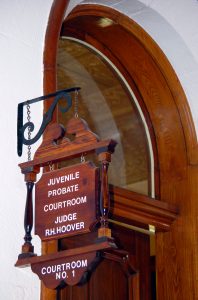 Illinois law has made a special type of Probation available for first-time felony drug offenders to avoid a felony conviction on their record. This type of Probation is commonly known as Section 410 or Section 1410 Probation. In order to be eligible for this type of Probation, you cannot have previously been convicted of, or placed on Probation or Court Supervision, for any criminal offense related to Cannabis or Illegal Drugs. This includes Prescription Drugs. If you are eligible for this type of Probation, here’s how it works:
Illinois law has made a special type of Probation available for first-time felony drug offenders to avoid a felony conviction on their record. This type of Probation is commonly known as Section 410 or Section 1410 Probation. In order to be eligible for this type of Probation, you cannot have previously been convicted of, or placed on Probation or Court Supervision, for any criminal offense related to Cannabis or Illegal Drugs. This includes Prescription Drugs. If you are eligible for this type of Probation, here’s how it works:
At the time of sentencing, you will have to plead guilty to the charges. The court will accept your guilty plea but will not enter judgment. The court will place you on a period of Probation that will last 24 months. The only time you should have to go back to court before your Probation ends is if a Petition to Violate your Probation is filed or if the court schedules a check date to see how you are doing. While you are on Probation the court will require that you do not violate any criminal laws in any state. You will not be allowed to possess a firearm or any other dangerous weapon. The court will order that you submit to random and unscheduled drug testing. You will be required to pay the cost of the drug testing but you should not have to take more than 3 drug tests during the period of your Probation. You will also be required to perform 30 hours of community service. In addition, the court may require additional conditions such as payment of additional fines and court costs, require that you continue with your education, undergo medical or psychiatric treatment, and may require that you appear in court periodically. The statute gives the court great latitude on imposing additional conditions on your 410 Probation. Since every case is different, any additional requirements will depend on your particular case.
There are some drawbacks to this type of Probation. The main problem being that since you have pled guilty to the charges, if the court determines that you violated your 410 Probation for any reason, you cannot go back to that court and fight the case because you have already pled guilty. So if you violate this Probation, the only question before the court will be what your sentence should be. You will not be able to contest your guilt or innocence. If you violate your Probation, typically the court will convert the 410 Probation to a felony conviction which could result in a sentence of felony Probation or a jail sentence.
 Chicago Criminal Lawyer Blog
Chicago Criminal Lawyer Blog


 The Lake County State’s Attorney’s office has announced a new program that allows first time misdemeanor and felony offenders an opportunity to avoid having a criminal conviction permanently on their record. The Lake County State’s Attorney’s Office calls it the Alternative Prosecution Program. If the crime involves violence the offender is not eligible for the program. The Lake County State’s Attorney’s office makes the final decision on whether an offender will be allowed into the program. Here’s how it works.
The Lake County State’s Attorney’s office has announced a new program that allows first time misdemeanor and felony offenders an opportunity to avoid having a criminal conviction permanently on their record. The Lake County State’s Attorney’s Office calls it the Alternative Prosecution Program. If the crime involves violence the offender is not eligible for the program. The Lake County State’s Attorney’s office makes the final decision on whether an offender will be allowed into the program. Here’s how it works. Yesterday, Illinois governor Bruce Rauner, signed a bill into law which increases the minimum sentence for defendants convicted of a second or subsequent violation of
Yesterday, Illinois governor Bruce Rauner, signed a bill into law which increases the minimum sentence for defendants convicted of a second or subsequent violation of  The Kane County State’s Attorney’s Office has a unique program which gives first time non-violent offenders an opportunity to avoid having a felony or misdemeanor conviction on their record. It’s called the Deferred Prosecution Program. The Kane County Deferred Prosecution Program started in 1995 and was originally called “Second Chance.” Prosecutors working in Kane County, as well as criminal defense lawyers, have long sensed that this was a good program with good results. Recently, those beliefs were proven to be true. A study was conducted with the help of Aurora University to study how effective this program was. That study showed that 92% of criminal defendants placed into this program have not been convicted of any crime since completing the program. A 92% success rate is good no matter how you look at it. In my 26 years of practicing criminal law, I have had the opportunity to have many of my clients accepted into this program and agree that it is effective and is a great opportunity for a first-time offender to avoid having a criminal record. Let’s discuss what this program is and how it all works.
The Kane County State’s Attorney’s Office has a unique program which gives first time non-violent offenders an opportunity to avoid having a felony or misdemeanor conviction on their record. It’s called the Deferred Prosecution Program. The Kane County Deferred Prosecution Program started in 1995 and was originally called “Second Chance.” Prosecutors working in Kane County, as well as criminal defense lawyers, have long sensed that this was a good program with good results. Recently, those beliefs were proven to be true. A study was conducted with the help of Aurora University to study how effective this program was. That study showed that 92% of criminal defendants placed into this program have not been convicted of any crime since completing the program. A 92% success rate is good no matter how you look at it. In my 26 years of practicing criminal law, I have had the opportunity to have many of my clients accepted into this program and agree that it is effective and is a great opportunity for a first-time offender to avoid having a criminal record. Let’s discuss what this program is and how it all works. TASC Probation is a special kind of probation that is available to criminal defendants who have substance abuse issues and elect to receive treatment for their disorder. It’s a possible sentence that I have explored throughout the years to help my clients avoid a criminal conviction and be able to move on with their lives. TASC stands for “Treatment Alternatives for Safe Communities.” This not for profit organization has offices throughout the State of Illinois in every County that provides treatment services for adults who have substance abuse issues. TASC probation is different from regular drug probation in that you do not have to be charged with a drug crime to receive TASC probation.
TASC Probation is a special kind of probation that is available to criminal defendants who have substance abuse issues and elect to receive treatment for their disorder. It’s a possible sentence that I have explored throughout the years to help my clients avoid a criminal conviction and be able to move on with their lives. TASC stands for “Treatment Alternatives for Safe Communities.” This not for profit organization has offices throughout the State of Illinois in every County that provides treatment services for adults who have substance abuse issues. TASC probation is different from regular drug probation in that you do not have to be charged with a drug crime to receive TASC probation.